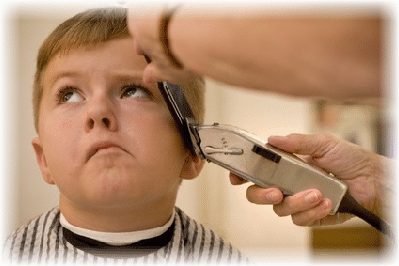
✂ Cosmetology & Barber Board Prep eBooks ✂ Cosmetology & Barber Articles ✂ Cosmetology History ✂ Financial Aid ✂ Questions For School Recruiters ✂ Cosmetology Exams ✂ Barber Exams ✂ Esthetics Exams ✂ Manicurist Exams ✂ Nautural Hair & Braiding Exams ✂ FWYN LLC ✂ LOUISIANA Board of Cosmetology and Barbering Info ✂ Free LA Exams ✂
Click one of the LOUISIANA cities to find a beauty or barber school in LOUISIANA. Click the city then send a request to a listed school to find out more information. When the addmissions representative contacts you, ask about the school tuition ♦ Are all costs included in the tuition? ♦ What curriculum do you teach? ♦ What grade average do I need to maintain to graduate? ♦ Do you have an attendance policy? ♦ How long does it take to complete your course? ♦ Do you have a website? ♦ How large are the classes? ♦ Are there any up-front fees I need to know about? ♦ Can you mail me information on your school before I take a tour? ♦ Is there financial aid available? ♦ Is there an entrance exam? ♦ What can you tell me about the instructors? ♦ When was the college established? ♦ Do you have part time and evening classes? ♦
City: Abbeville, LA
City: Baton Rouge, LA
City: Covington, LA
City: Denham Springs, LA
City: Gretna, LA
City: Hammond, LA
City: Houma, LA
City: Kenner, LA
City: Lafayette, LA
City: Lake Charles, LA
City: Metairie, LA
City: Monroe, LA
City: New Iberia, LA
City: New Orleans, LA
City: Shreveport, LA
 The most important skill you must take into the industry with you when you graduate with a Cosmetology (Esthetics, Barbering, Massage Therapy, Nail Technology, etc.) Education - is the skill to develop rapport with people. Notice, I did not simply say with your clientele � with people. What people? Managers, co-workers, clientele, and anyone who might send business your way.
The most important skill you must take into the industry with you when you graduate with a Cosmetology (Esthetics, Barbering, Massage Therapy, Nail Technology, etc.) Education - is the skill to develop rapport with people. Notice, I did not simply say with your clientele � with people. What people? Managers, co-workers, clientele, and anyone who might send business your way.
Leo Passage, the president and founder of Pivot Point International makes the following statement, in the forward of the book PEOPLE SKILLS, Your Guide To Salon Success:
[Quote] As industry research points out, experts believe that as much as 80 � 85 percent of your success depends on your ability to deal effectively with people � your clients, your co-workers, the boss. (And only 15 � 20 percent of your success is dependent on technical ability!) [End Quote]
Mr. Passage goes on to tell the story of how he worked with a young designer who was only a few months out of Beauty School. Her combouts didn�t look as though they had been combed at all! Leo, on the other hand, was an award winning, world champion designer working in the same salon. Imagine his surprise when this young lady, whose combouts left much to be desired, became the highest paid hair stylist in the salon! Why? Mr. Passage states in the forward � [Quote] She took the time to learn about people, to consult with them about their needs, and to show that she cared�[End Quote]
There are many successful business people who understand the overwhelming importance of people skills. The good news is, you do not have to have a degree in psychology to begin to enhance your ability to develop rapport with people. There are numerous self-help books on success that will guide you in the right direction. If you are serious about being head and shoulders above the average beauty school graduate � check out some literature by the following authors:
John Gray, Ph.D.,
Dale Carnegie,
Anthony Robbins,
Doe Lang, Ph.D.,
Zig Ziglar,
Norman Vincent Peale.
Anthony Robbins gives the reader unique ways to develop and strengthen people skills. In his book, UNLIMITED POWER, Mr Robbins writes an entire chapter devoted to Rapport. Another chapter is dedicated to How to Handle Resistance and Solve Problems, and yet another chapter devoted to people skills in The Power of Persuasion. In the chapter describing rapport, the reader learns that to establish rapport we must create or discover things in common with one another � but we don�t create rapport simply through conversation. The most effective rapport is developed through words and physiology combined. For instance, a client is in your chair, they are speaking loudly � laughing � smiling � using hand gestures. You smile, you laugh with them, and purposefully use the same types of hand gestures when possible -- your client soon will naturally feel something in common with you. Perhaps the next client speaks in a softer tone � you also speak in a soft tone. When you do this, when you mirror your clients demeanor, notice how they respond. This is simply one effective way to develop rapport without ever opening up a book on psychology!
Doe Lang, the author of CHARISMA will teach the reader thirteen kinds of charisma. The author also teaches how to stop putting yourself down; how to find your true best voice; projecting the charisma within you; overcoming performance anxiety, and more.
One communication skill all beauty school graduates need to develop, is the art of reading another�s body language. How can you tell if a client is truly happy with you? Sure, you may receive a tip from them the first time you provide a service... but are they going to come back - again and again? Learn to interpret body language, and you will have a very good idea. If you do not understand how to use your own body language, and interpret other�s body language � you may be perpetually harming your own business activities in the salon and spa.
Those who are successful, whether knowingly or by accident, are most certainly body language connoisseurs. Body language is a vital part of communication which can make up to 50 percent or more of what we communicate. You can send signals with individual parts of the body as well as in concert. The following is a list of different parts of the body which communicate messages - many times unwittingly: Face, Cheek, Chin, Mouth, Lips, Teeth, Tongue, Nose, Eyes, Eyebrow, Forehead, Hair, Elbow, Hand, Finger, Neck, Shoulder, Chest, Back, Belly, Bottom, Hips, Legs, Thigh, Knee, and Foot.
Here are some foot body language examples. The direction a person�s feet are pointing is generally where they would prefer to be. If there is an interesting conversation � do the listener's feet point toward the conversationalists (then they like the conversation) or away (they really want to run in the opposite direction!).
Tapping the foot can be a sign of impatience as the person gets into a kind of tense repetitive state. The foot becomes like a clock's pendulum, marking and moving on time. For instance, a person's tapping foot may be telling you - when is she going to stop talking and finish my hair style?